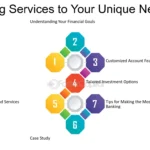In today’s fast-paced construction industry, managing projects effectively is more crucial than ever. Project managers face numerous challenges, from keeping projects on schedule and budget to ensuring quality and safety standards are met. To navigate these complexities, professionals are increasingly relying on a variety of advanced tools and techniques. This article explores the key strategies that can lead to successful construction project management.
Embracing Project Management Software
One of the most significant tools in the arsenal of a construction project manager is project management software. These platforms help streamline processes by providing a single point of reference for scheduling, budget management, resource allocation, and communication. Software like Autodesk BIM 360, Procore, and Microsoft Project allow managers to create more accurate timelines, keep track of expenses, and ensure that everyone from subcontractors to stakeholders is on the same page. The real-time data provided by these tools helps in making informed decisions quickly, which is essential for the dynamic environment of construction sites.
Implementing Lean Construction Principles
Lean construction has transformed how projects are managed by focusing on minimizing waste and maximizing value. This methodology relies on detailed planning and continuous improvement to enhance productivity and reduce costs. By adopting lean principles, project managers can deliver projects more efficiently. Techniques such as the Last Planner System (LPS) and the use of Kanban boards facilitate better workflow and communication, ensuring that every stage of the construction process is as streamlined as possible.
Advanced Scheduling Techniques
Effective scheduling is vital to the success of construction projects. Techniques like the Critical Path Method (CPM) and Gantt charts are indispensable for planning and visualizing the sequence of activities. These tools help managers identify which tasks are critical and how delays could impact the overall project timeline. More sophisticated software also allows for scenario simulation, giving managers the ability to foresee potential problems and adjust plans proactively.
Enhancing Communication with Mobile Technology
Mobile technology has become a game-changer in improving communication on construction sites. Apps and mobile devices enable managers, crew, and stakeholders to stay connected regardless of their location. This instantaneous communication helps in quick resolution of issues, updates on progress, and sharing of documents without the need for physical presence, thus speeding up decision-making processes.
Safety Management and Compliance Tools
Safety management is another critical aspect of construction project management. Tools that automate safety compliance help reduce the risk of accidents and ensure regulatory compliance. Technologies such as wearables can monitor workers’ health indicators and environmental conditions, alerting managers to potential safety issues before they become problematic. Drones, too, are used for inspecting hard-to-reach areas, ensuring that the project adheres to safety standards without putting workers at risk.
Utilizing Temporary Structures
Within the context of enhancing project efficiency, the use of temporary buildings can be particularly advantageous. These structures serve as essential hubs for storage, meetings, and shelter, providing flexibility and functionality without the long-term commitment of permanent construction. This allows project sites to adapt quickly to changing needs without significant disruptions to the overall workflow. Moreover, temporary buildings can be repurposed or relocated as project demands shift, representing a cost-effective and practical solution in the dynamic environment of construction.
Continuous Learning and Professional Development
The field of construction is continuously evolving, with new materials, technologies, and methods developing at a rapid pace. Successful project managers recognize the importance of keeping up-to-date with industry trends and advancements. Continuous learning through workshops, seminars, and courses not only enhances professional skills but also provides insights into how to integrate innovative practices into traditional project management frameworks.
Conclusion
Managing construction projects successfully requires a blend of traditional skills and modern technological insights. By leveraging project management software, adopting lean construction principles, utilizing advanced scheduling techniques, and embracing mobile technology, managers can handle complex projects more effectively. Incorporating temporary buildings into the project infrastructure further enhances flexibility and efficiency, providing a strategic advantage in managing the multifaceted challenges of today’s construction projects. As the industry continues to evolve, those who continuously adapt and integrate new tools and techniques will lead their projects to success.


